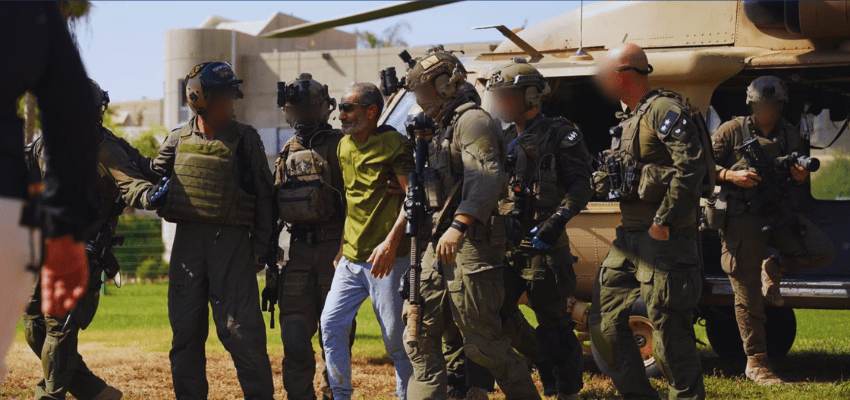This article originally appeared in the Hub.
By Sarah Teich and Marcus Kolga, August 28, 2024
In the days following the historic prisoner swap on August 1 that saw Canadian-American Paul Whelan and another 15 people released from Russian prison, there are growing questions about how democracies can counter the rising tactic of hostage diplomacy.
Russia continues to hold Westerners hostage, and the use of hostage-taking and arbitrary detention by authoritarian regimes to advance their own ends is a phenomenon that will only expand unless the West takes a stronger stand.
The safety of Canadians all over the world is at stake. This is a phenomenon that goes beyond Russia. Many Canadians—including Huseyin Celil, Zahra Kazemi, Homa Hoodfar, Sun Qian, and Xiao Jianhua—have been seized as hostages by terrorist groups and by authoritarian regimes including China and Iran. Several—Huseyin Celil, Sun Qian, and Xiao Jianhua—remain imprisoned as hostages today. For others, their status is unknown. For instance, the family of Behnoush Bahraminia, an Iranian-Canadian woman, believes she is currently detained in Iran along with her partner, Majid (Mathew) Safari.
In response to all these incidents, it is time for Canada to introduce effective and specific legislation to combat hostage-taking and arbitrary detentions, sending a clear signal to perpetrators that these crimes are unacceptable.
While diplomacy and back-room negotiations can at times result in the successful release of hostages and those arbitrarily detained, it is currently one of Canada’s only options for response.
There are also limited options for government officials to use existing human rights laws to leverage pressure. For example, while Canada’s version of the U.S. Magnitsky Act theoretically permits targeted sanctions to be implemented in response to any gross human rights violations, British barrister Amal Clooney has noted that there is an “apparent reticence among some policy-makers (across the United States, the United Kingdom, the European Union, and Canada) to use sanctions in response to cases of arbitrary detention or against judicial officers for such detention or unfair trials.”
To address the law and policy gap in relation to hostage-taking and arbitrary detention, Co-Deputy Conservative Leader Melissa Lantsman last fall introduced the federal private member’s bill C-353, the Foreign Hostage Takers Accountability Act. Bill C-353 passed second reading on June 5 and is expected to be considered in committee when Parliament resumes.
Bill C-353, which is based on the January 2021 legislative proposal co-published by Secure Canada (formerly known as the Canadian Coalition Against Terror) and the Macdonald-Laurier Institute, would provide Canadian officials with more tools to effectively combat hostage-taking and arbitrary detention in state-to-state relations.
The first part of the bill would create a dedicated sanctions mechanism whereby sanctions can be imposed on foreign nationals, foreign states, or foreign entities responsible for, or complicit in, the hostage-taking or arbitrary detention of Canadian nationals or refugees. Sanctions may also be levied against foreign nationals, foreign states, or foreign entities that have materially assisted, sponsored, or provided financial, material, or technological support for, or goods or services in support of, such hostage-taking or arbitrary detention.
The second part of the bill would require Canadian officials to provide more consistent support to family members of those held hostage or arbitrarily detained abroad. A Toronto Star investigation from 2016 exposed the inconsistent, inadequate nature of the government’s support and communications with families of hostages, but very little has changed in this regard since then.
The third part of the bill would encourage and enable increased multilateral cooperation by, among other things, enabling the Canadian government to provide monetary rewards and/or refugee protection to foreign nationals who provide information leading to the release and repatriation of a Canadian hostage or individual arbitrarily detained. These discretionary tools may serve not only to incentivize cooperation but also to protect those who help us by bringing them to safety in Canada.
In February 2021, Canada launched the Declaration Against Arbitrary Detention in State-to-State Relations in Ottawa. The next natural step is substantial legal reform to address specific gaps.
Going beyond declarations and passing substantive law to combat hostage-taking and arbitrary detention in state-to-state relations will help improve the safety of Canadians abroad by giving greater teeth to the government’s efforts to combat these crimes and, ultimately, deter the behaviour in the first place. Such legislation may embolden policymakers to leverage a variety of tools to pressure those responsible and raise the costs associated with taking Canadians hostage.
Sarah Teich is an international human rights lawyer, a senior fellow at the Macdonald-Laurier Institute, and an author of Combatting Transnational Repression and Foreign Interference in Canada.
Marcus Kolga is a senior fellow at the Macdonald-Laurier Institute and CDA Institute.






